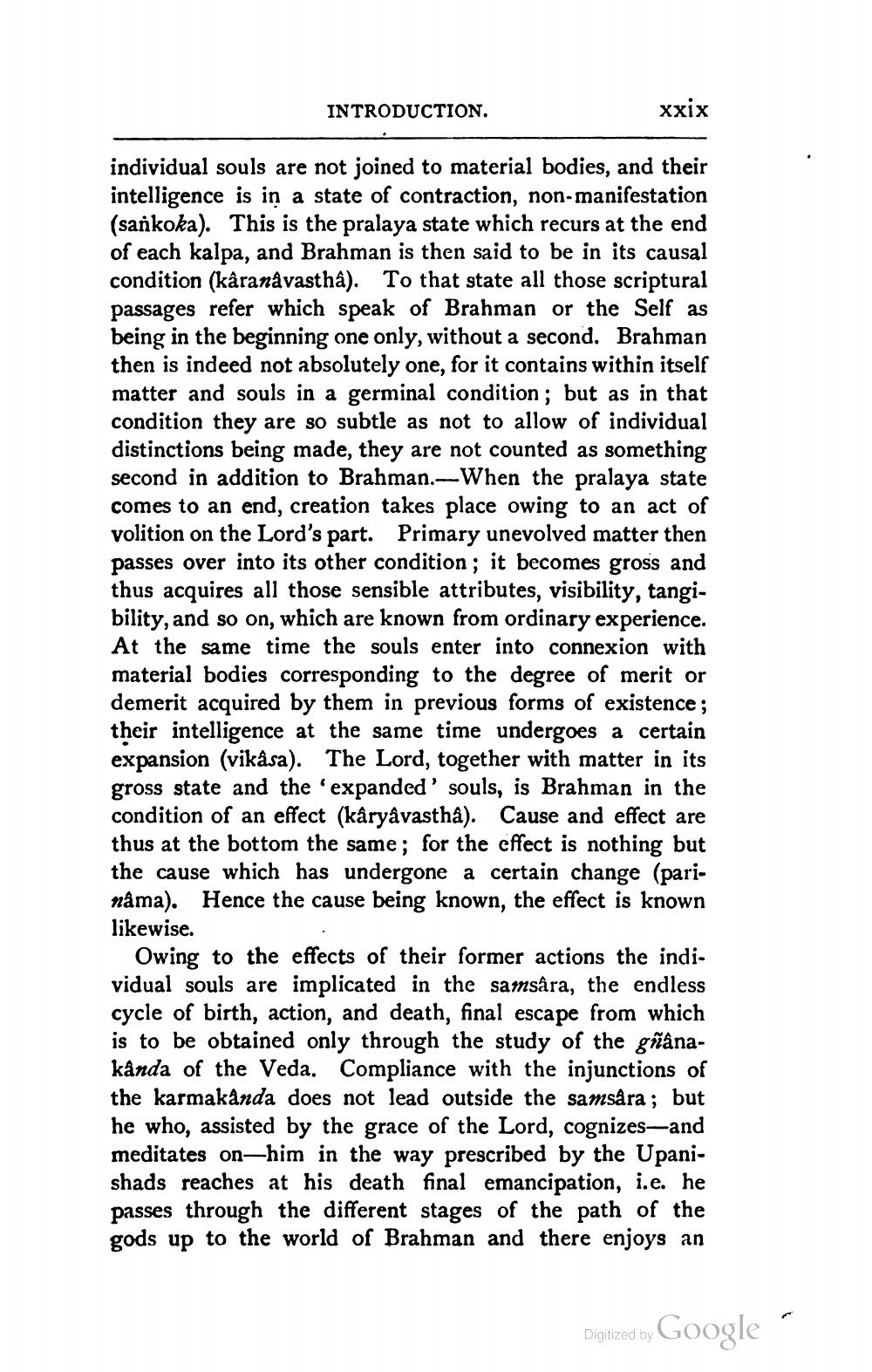________________
INTRODUCTION.
xxix
individual souls are not joined to material bodies, and their intelligence is in a state of contraction, non-manifestation (sankoka). This is the pralaya state which recurs at the end of each kalpa, and Brahman is then said to be in its causal condition (kâranavastha). To that state all those scriptural passages refer which speak of Brahman or the Self as being in the beginning one only, without a second. Brahman then is indeed not absolutely one, for it contains within itself matter and souls in a germinal condition; but as in that condition they are so subtle as not to allow of individual distinctions being made, they are not counted as something second in addition to Brahman.-When the pralaya state comes to an end, creation takes place owing to an act of volition on the Lord's part. Primary unevolved matter then passes over into its other condition; it becomes gross and thus acquires all those sensible attributes, visibility, tangibility, and so on, which are known from ordinary experience. At the same time the souls enter into connexion with material bodies corresponding to the degree of merit or demerit acquired by them in previous forms of existence; their intelligence at the same time undergoes a certain expansion (vikåsa). The Lord, together with matter in its gross state and the expanded' souls, is Brahman in the condition of an effect (kâryâvasthà). Cause and effect are thus at the bottom the same; for the effect is nothing but the cause which has undergone a certain change (parinâma). Hence the cause being known, the effect is known likewise.
Owing to the effects of their former actions the indi. vidual souls are implicated in the samsâra, the endless cycle of birth, action, and death, final escape from which is to be obtained only through the study of the gñanakända of the Veda. Compliance with the injunctions of the karmakânda does not lead outside the samsara ; but he who, assisted by the grace of the Lord, cognizes-and meditates on—him in the way prescribed by the Upanishads reaches at his death final emancipation, i.e. he passes through the different stages of the path of the gods up to the world of Brahman and there enjoys an
Digitized by Google




